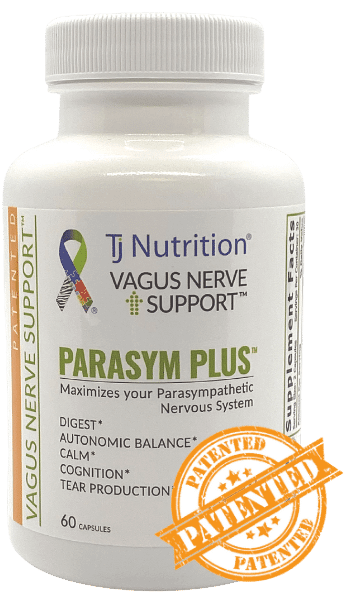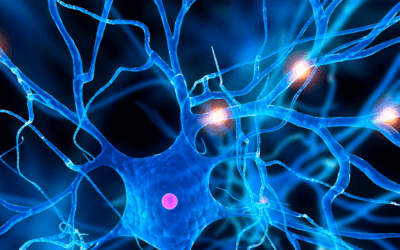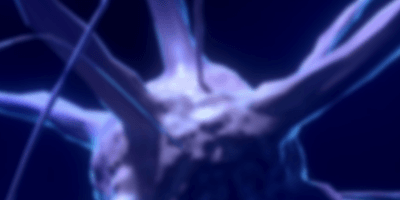Acetylcholine
Acetylcholine is the neurotransmitter used by the brain for cognition and short-term memory. Boosting acetylcholine levels is an effective (and FDA-approved) method of treating dementia/Alzheimer’s. We must have optimal levels of acetylcholine to maximize our brain health.
Some of us need antihistamines and may need them chronically. Those of us with allergies, asthma, high IgE levels, mast cell activation syndrome (MCAS), and other chronic inflammatory conditions can improve our symptoms with antihistamines. Some of us cannot achieve the same response through dietary changes.
Even more importantly, histamine has been shown to actually cause Alzheimer’s-like effects on the brain — so it must be controlled!
Is it possible to take antihistamines to block histamine, yet still boost our levels of acetylcholine? After all, antihistamines are taken to block histamine — the anticholinergic effects are a side-effect only (not the mechanism of action of the drug).
As a Patient
As a patient, antihistamines can be hugely helpful for me, but I didn’t want them to affect my brain. For years, I suffered from extreme mental decline due to low acetylcholine levels. Neurological tests showed my short-term memory was almost non-existent. I suffered from such mental fatigue that I have difficulty making a “to-do” list of even 3 items. If I accomplished that feat, then I was too exhausted to do any of the items on the list, and instead, I went back to bed for most of the day.
My case was a dramatic one – at one point I was only able to stay awake for about three hours a day and during those 3 hours, I wanted to be asleep. Even more frightening I felt that I was getting worse every day. Although my problems were not all due to low acetylcholine from antihistamines, I didn’t want the medication to worsen it! Boosting my acetylcholine was the essential missing piece in restoring my cognition and levels of mental energy. This allowed me to stay on necessary antihistamines, yet restore and retain my cognition.
Having lost my mental function for so long, I have no intention of losing it again. I fight both histamine and inflammation by supporting my acetylcholine levels. This is an essential part of my morning — every morning.
References
Wang, Hong, et al. “Nicotinic acetylcholine receptor α7 subunit is an essential regulator of inflammation.” Nature 421.6921 (2003): 384. [PubMed]
Kawanishi, Noriaki, et al. “Neutrophil Depletion Attenuates Muscle Injury after Exhaustive Exercise.” Medicine and science in sports and exercise 48.10 (2016): 1917-1924. [Full Article]
Neubauer, Oliver, Daniel König, and Karl-Heinz Wagner. “Recovery after an Ironman triathlon: sustained inflammatory responses and muscular stress.” European journal of applied physiology 104.3 (2008): 417-426. [PubMed]
Gomez-Merino, Danielle, et al. “Comparison of systemic cytokine responses after a long-distance triathlon and a 100-km run: relationship to metabolic and inflammatory processes.” European cytokine network 17.2 (2006): 117-124. [Full Article]
Nieman, David C., et al. “Muscle damage is linked to cytokine changes following a 160-km race.” Brain, behavior, and immunity 19.5 (2005): 398-403. [PubMed]
Pinho, Ricardo A., et al. “Oxidative stress and inflammatory parameters after an Ironman race.” Clinical Journal of Sport Medicine 20.4 (2010): 306-311. [PubMed]
Pavlov, Valentin A., and Kevin J. Tracey. “The cholinergic anti-inflammatory pathway.” Brain, behavior, and immunity 19.6 (2005): 493-499. [Full Article]
Suzuki, Katsuhiko. “Cytokine response to exercise and its modulation.” Antioxidants 7.1 (2018): 17. [Full Article]
Walton, R. Grace, et al. “Human skeletal muscle macrophages increase following cycle training and are associated with adaptations that may facilitate growth.” Scientific Reports 9.1 (2019): 969. [Full Article]
Bonaz, Bruno, Valérie Sinniger, and Sonia Pellissier. “Anti‐inflammatory properties of the vagus nerve: potential therapeutic implications of vagus nerve stimulation.” The Journal of physiology 594.20 (2016): 5781-5790. [Full Article]
Lilja, Mats, et al. “High doses of anti‐inflammatory drugs compromise muscle strength and hypertrophic adaptations to resistance training in young adults.” Acta Physiologica 222.2 (2018): e12948. [PubMed]
Main, Cheryl, Patricia Blennerhassett, and Stephen M. Collins. “Human recombinant interleukin 1β suppresses acetylcholine release from rat myenteric plexus.” Gastroenterology 104.6 (1993): 1648-1654. [Full Article]
Kelles, A., J. Janssens, and Jan Tack. “IL‐1β and IL‐6 excite neurones and suppress cholinergic neurotransmission in the myenteric plexus of the guinea pig.” Neurogastroenterology & Motility 12.6 (2000): 531-538. [PubMed]
Komegae, Evilin Naname, et al. “Vagal afferent activation suppresses systemic inflammation via the splanchnic anti-inflammatory pathway.” Brain, behavior, and immunity 73 (2018): 441-449. [PubMed]
Vina, Jose, et al. “Exercise acts as a drug; the pharmacological benefits of exercise.” British journal of pharmacology 167.1 (2012): 1-12. [Full Article]











